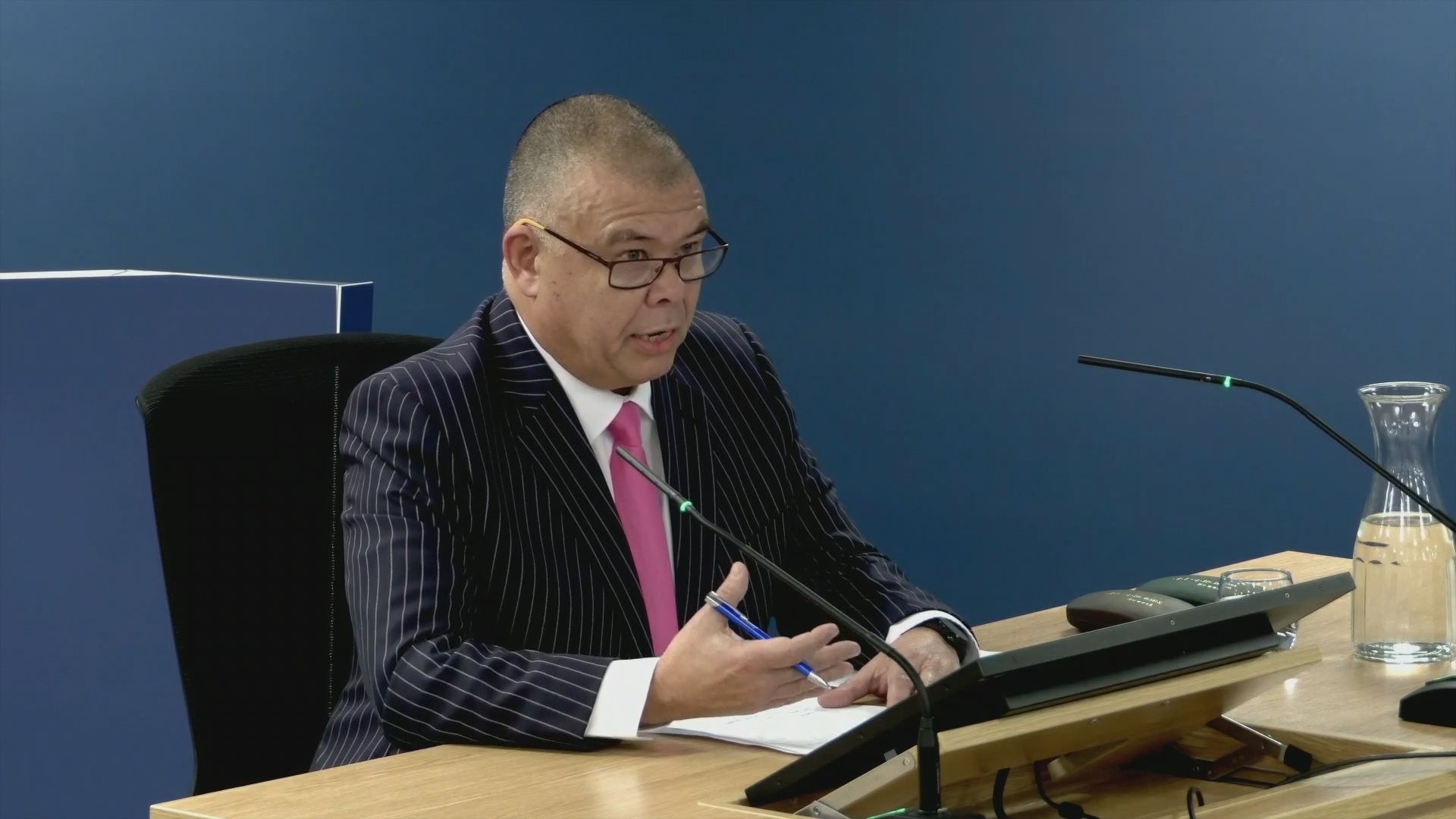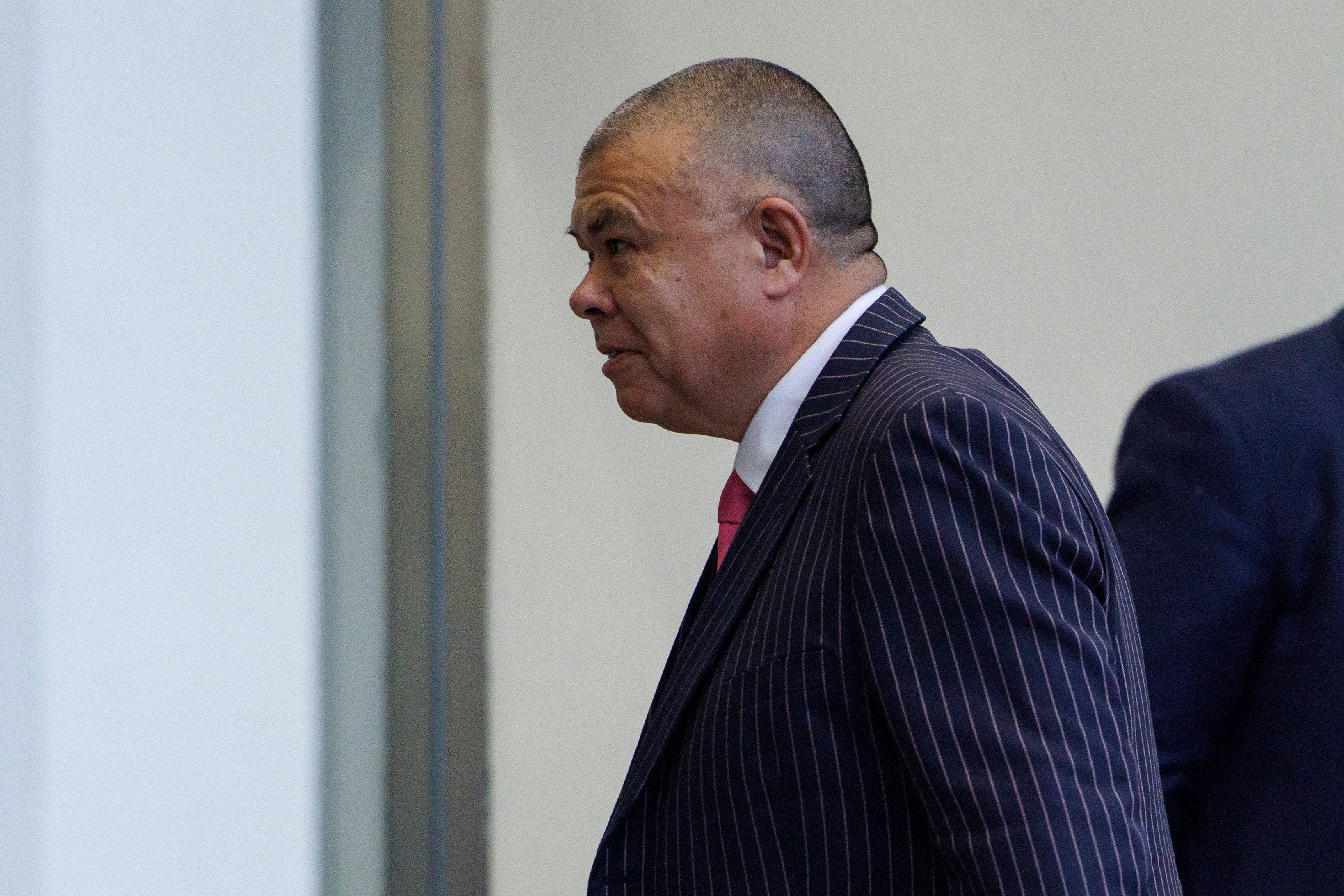Covid inquiry: Jonathan Van-Tam says family was threatened with having throats cut during pandemic
Sir Jonathan recalls police involvement after ‘extremely hateful messages’ as he and Sir Chris Whitty testify at Covid inquiry
Your support helps us to tell the story
From reproductive rights to climate change to Big Tech, The Independent is on the ground when the story is developing. Whether it's investigating the financials of Elon Musk's pro-Trump PAC or producing our latest documentary, 'The A Word', which shines a light on the American women fighting for reproductive rights, we know how important it is to parse out the facts from the messaging.
At such a critical moment in US history, we need reporters on the ground. Your donation allows us to keep sending journalists to speak to both sides of the story.
The Independent is trusted by Americans across the entire political spectrum. And unlike many other quality news outlets, we choose not to lock Americans out of our reporting and analysis with paywalls. We believe quality journalism should be available to everyone, paid for by those who can afford it.
Your support makes all the difference.The government’s former deputy chief medical adviser has revealed he thought about quitting after his family was threatened with having their throats cut during the pandemic.
Testifying at the Covid inquiry on Wednesday, Sir Jonathan Van-Tam said his family had been asked to temporarily move home for their safety while police dealt with the “extremely hateful messages” – but they remained in place because “we didn’t want to leave the cat”.
Sir Jonathan said that while he might have expected the “very, very intense” workload at the pandemic’s outset – which was “horrendous for all of us”, with officials working 16-hour days, seven days a week – he “did not expect my family to be threatened with having their throats cut”.

The former government official, who left the post in March last year, added: “I did not expect the police to have to say, ‘Will you move out in the middle of the night, or in the middle of the evening? Will you move out for a few days while we look at this and potentially make some arrests?’”
He continued: “It was a very stressful time indeed. My family didn’t sign up for that, and I only make this point because I’m so worried that if there’s a future crisis, people will not want to sign up for these roles and these jobs, because of the implications that come with them.”
His testimony echoes that of Sir Patrick Vallance, who told the inquiry on Monday that he considered quitting as chief scientific adviser as a result of concerns “for the wellbeing and safety of my family” after receiving threats and abuse.
Former chief medical officer Sir Chris Whitty has also expressed alarm to the inquiry about threats to health officials, and a man was last year jailed for eight weeks after admitting to intending to cause Sir Chris distress when approaching him in public last June.
Sir Jonathan became the latest of those three top scientists – frequently seen flanking Boris Johnson and other cabinet ministers at the Downing Street podium in the height of the pandemic – to take the stand this week, and face questioning about decisions taken during the crisis.

In a blow to the prime minister, Sir Jonathan joined his colleagues in saying – contrary to Mr Johnson’s assertions to the inquiry – that he was “absolutely not” consulted on then-chancellor Rishi Sunak’s Eat Out to Help Out scheme, adding: “The first I heard about was, I think, on the TV.”
“Had I been consulted I wouldn’t have made any distinction between Eat Out to Help Out and any other epidemiological event that brought different households into close contact with each other for the purposes of socialising, eating and consuming alcohol,” he said.
“The net epidemiological effect is agnostic to what’s on the menu. I would have said ‘this is exactly encouraging what we’ve been trying to suppress and get on top of in the last few months’. So it didn’t feel sensible to me.”
While the first lockdown in March 2020 “could have been earlier”, Sir Jonathan said “it was clear that we were losing control of the virus bit-by-bit through the autumn” prior to the second lockdown.
Warning that there were “just too many delays” for the tiered restrictions system to work efficiently, he added: “You’re already dealing with yesterday’s data trying to make decisions. And the tier system just seemed interminably slow between a decision and the negotiation on the economic packages to enable it to happen.”
Concluding his testimony earlier on Wednesday, Sir Chris appeared to agree, saying that while the second national lockdown was inevitable, it “wasn’t necessarily inevitable had different decisions been taken”.
And Sir Chris suggested that on the weekend before the first national lockdown, there was a stark realisation that the UK was “a lot further along the path than we thought we were”.
The ex-CMO said he did not believe that “all parts of the Downing Street machinery equally were seized of the urgency” of the situation in mid-March 2020, adding: “This was a lot of people really not getting what exponential growth was actually going to mean.”
Sir Chris also lamented the confusion around the concept of herd immunity, describing public remarks on the concept by some government officials as being “a long way from helpful for the public”.
The top medic said his sole contribution on the issue before the first lockdown “was to say to people ‘this is very complicated, please don’t talk about it’”, adding: “Not because I wanted to hide it, but because I thought a very uninformed discussion was forming that was not helping policy-making.”
He added: “It was clearly a ridiculous goal of policy and a very dangerous one, and a lot of what was being said could have led to considerable confusion – and indeed did.”
